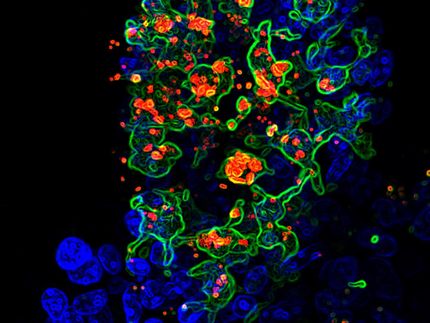Fat can neutralize listeria
Certain fatty acids are not just part of a healthy diet. They can also neutralise the harmful listeria bacterium, a new study shows. This discovery could eventually lead to improved methods to combat dangerous and drug-resistant bacteria.
It´s every consumer´s nightmare, bringing home food from the supermarket that turns out to be teeming with hazardous bacteria; listeria in the sausages or salmonella in the pork, for example.
Professor Birgitte Kallipolitis conducts research into dangerous bacteria at University of Southern Denmark and has led a new study that provides some surprising insights into the inner workings of the listeria bacterium. It´s a discovery that can help her and other researchers in their work to reduce the risk of dangerous bacteria in our foods.
- Our study has shown that common, naturally occurring fatty acids can switch off the specific genes that make the listeria bacterium dangerous. We tested omega-3 fatty acids, and it took them about half an hour to neutralise the listeria bacteria, says Birgitte Kallipolitis.
Healthy fatty acids as medicine
She and her research group at the Department of Biochemistry and Molecular Biology are running several studies to try to understand exactly what happens at the molecular level when fatty acids and listeria encounter each other.
- It´s interesting that naturally occurring, completely harmless and actually healthy fatty acids can be used to suppress dangerous bacteria such as listeria. The long-term perspective is that it may prove possible to develop new treatment methods - not only against listeria, but also against other dangerous bacteria that are currently resistant to antibiotics, she said.
Researchers have long known that high concentrations of certain fatty acids may have an antimicrobial effect and can kill dangerous bacteria such as listeria and salmonella.
Destroying the capacity to cause disease
- Now we have discovered that something happens at even low concentrations of fatty acids, and that this is something entirely different, says Birgitte Kallipolitis.
During the study, researchers observed that low concentrations of omega-3 fatty acids do not kill listeria bacteria. Instead, the specific genes responsible for their virulence, that is the capacity of the bacterium to cause disease, were switched off.
- Our theory is that the fatty acids do something to the PrfA protein so that it cannot switch on the virulence genes, and we´re very interested in finding out what exactly is occurring.
Allowing the bacterium to survive is a better strategy
At first glance, it can sound a little troubling that the bacteria are not killed but that they are "only" rendered harmless and therefore remain alive. But this is actually an advantage.
- When the growth of the bacterium is not threatened, it does not begin to develop new survival strategies that may make it resistant to attack. Bacteria can develop resistance to attacks, and we have many examples of how this merely creates new and even bigger problems for combating them. It might be a better strategy to let them live and instead aim to neutralise their capacity to cause disease, says Birgitte Kallipolitis.
A listeria infection can cause the disease, listeriosis, which can be a life-threatening illness.
Original publication
Most read news
Original publication
Eva Maria Sternkopf Lillebæk and Stine Lambert Nielsen and Rikke Scheel Thomasen and Nils J. Færgeman and Birgitte H. Kallipolitis; "Antimicrobial medium- and long-chain free fatty acids prevent PrfA-dependent activation of virulence genes in Listeria monocytogenes"; Research in Microbiology; 2017
Topics
Organizations
Other news from the department science

Get the life science industry in your inbox
By submitting this form you agree that LUMITOS AG will send you the newsletter(s) selected above by email. Your data will not be passed on to third parties. Your data will be stored and processed in accordance with our data protection regulations. LUMITOS may contact you by email for the purpose of advertising or market and opinion surveys. You can revoke your consent at any time without giving reasons to LUMITOS AG, Ernst-Augustin-Str. 2, 12489 Berlin, Germany or by e-mail at revoke@lumitos.com with effect for the future. In addition, each email contains a link to unsubscribe from the corresponding newsletter.
Most read news
More news from our other portals
Last viewed contents
NiKem Research and Chiesi Farmaceutici Extend Research Collaboration

Rentschler Biopharma breaks ground at new U.S. production site in greater Boston - Multi-product facility to focus on commercial production of complex molecules for U.S.-based clients
BASF plans significant investment in ibuprofen capacities in Germany and North America - New world-scale ibuprofen production plant in Ludwigshafen
Going back to nature - A look at processing systems for white biotech applications























































